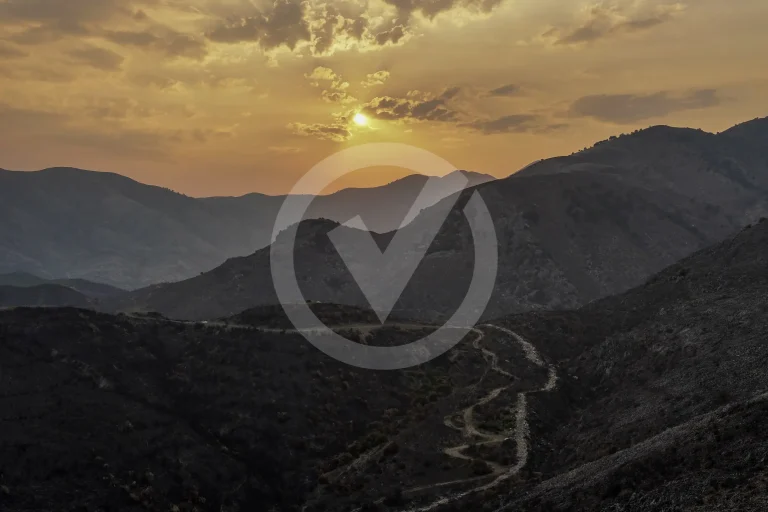
By Sebi Alla
Photographs by Atdhe Mulla
Faktoje traveled to Delvinë to document the stories of residents who, in just a few hours, lost their homes, vineyards, thousands of olive trees, and a lifetime of investments and savings. The devastating testimonies of the locals, whose words seem tinged with the gray of a burned town, highlight the helplessness of state institutions in mitigating the catastrophic damage of a fire that destroyed everything in a matter of hours.
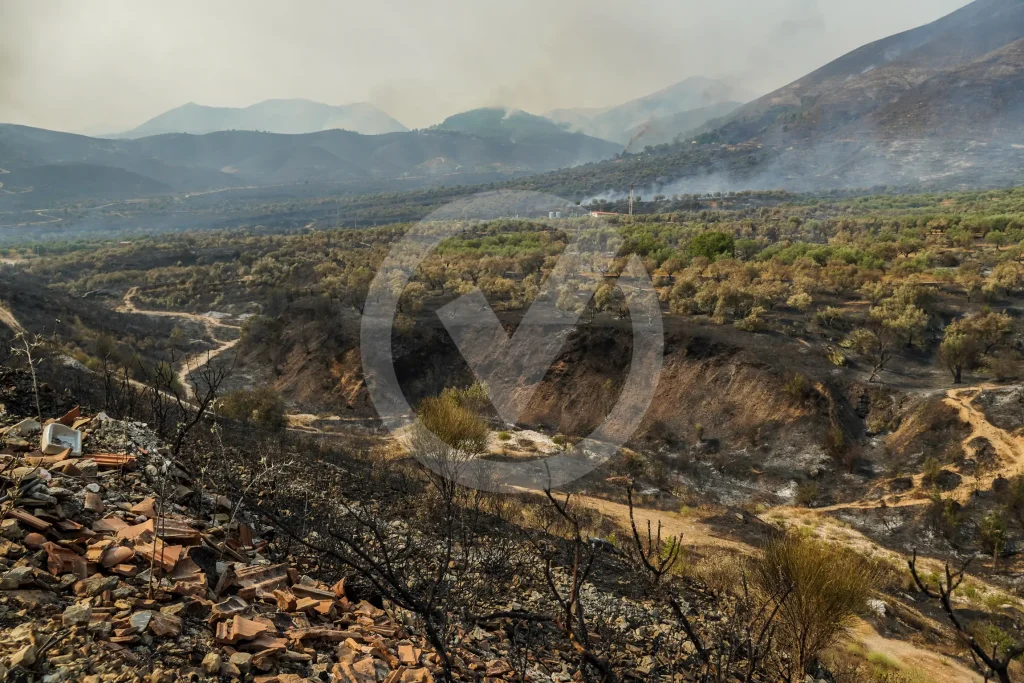
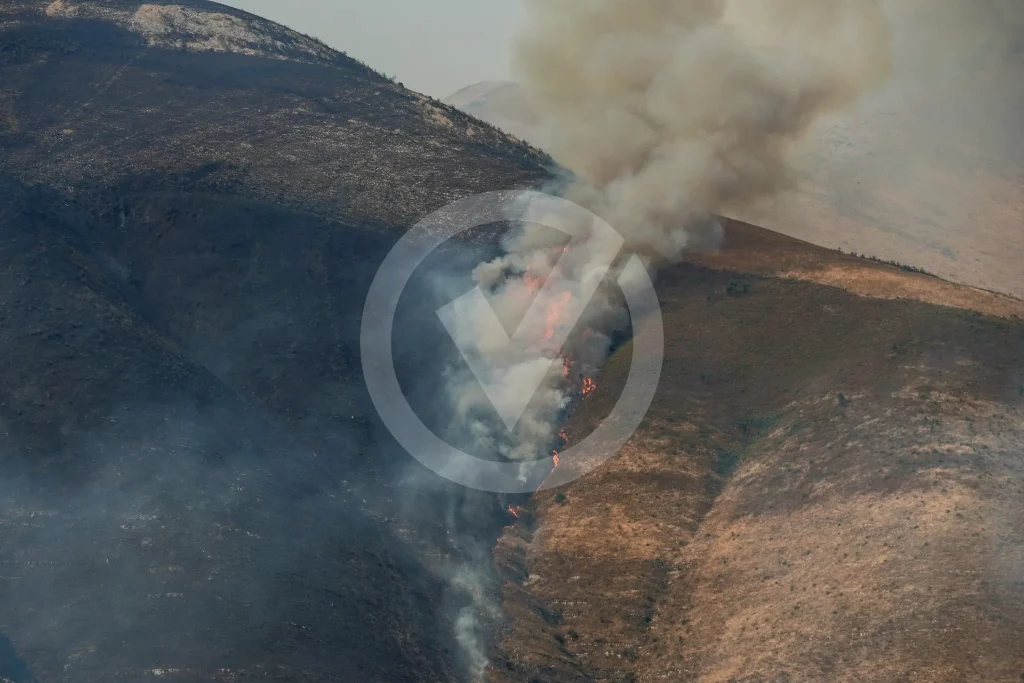
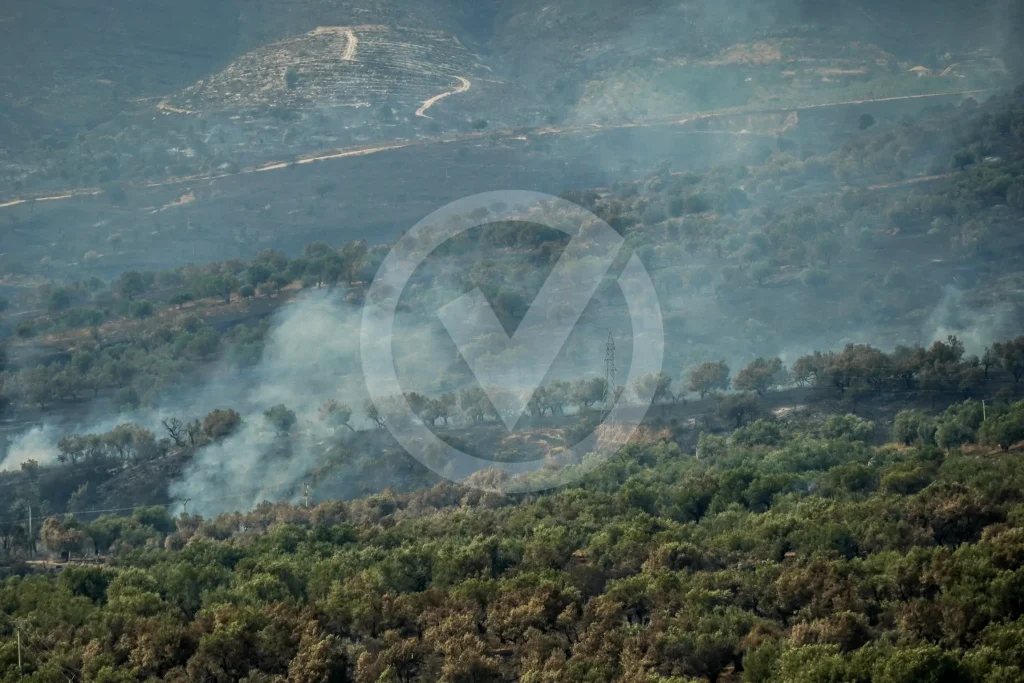
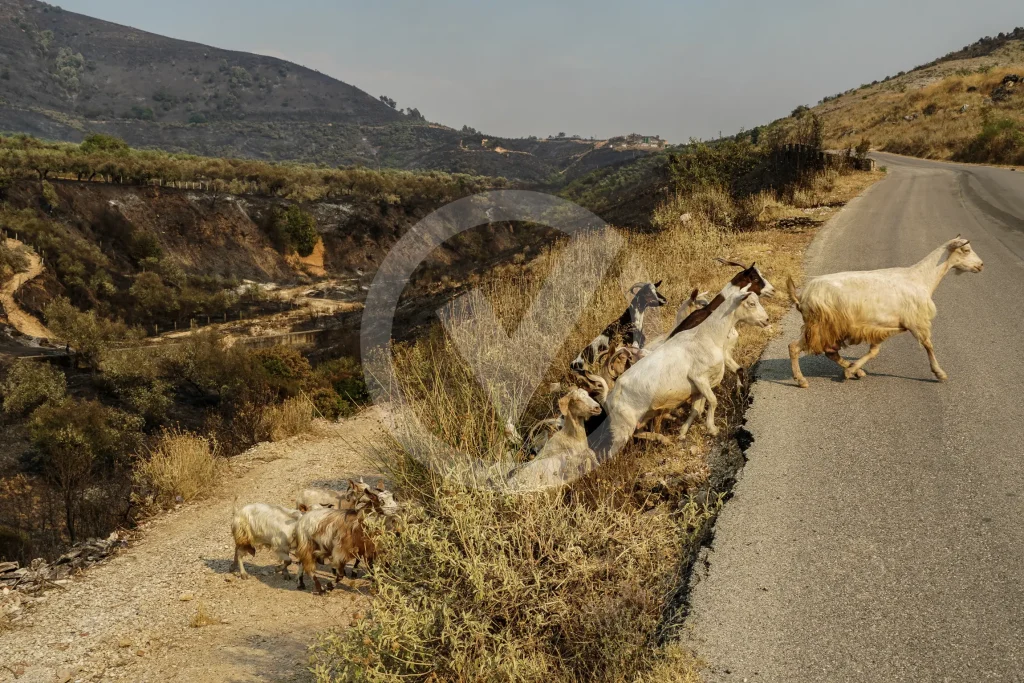
Under a small oasis beneath the scorched plane trees, Luan and Monika Muho showed mixed emotions: relief at having survived, and fear and panic that the memory of the catastrophic fire will never fade. “We survived, but the horror we experienced will not be easy to overcome, neither for us nor for our neighbors,” says 73-year-old Luan Mara to Faktoje. In Delvina, nothing is as it once was! Hundreds of traumatized residents, children and women evacuated in panic from the heart of the disaster, six homes destroyed, thousands of olive trees reduced to ash, vineyards turned to embers, and vegetation wiped out. What remains amid the blackened ruins is the stark helplessness of state structures, the lack of resources, and the human sacrifice of army personnel, firefighters, and police, who worked tirelessly to save lives, and they succeeded.
Terror at the doorstep
“The biggest fire outbreak happened at half past seven in the evening (Tuesday, August 12). It was caused by arson in Leshnik, and no preventive measures were taken to intervene and protect us from the disaster that struck. Preventive measures should have been taken earlier,” says 73-year-old Luan Mara for Faktoje.al, one of the residents most at risk, whose house lies at the edge of the hillside that was entirely consumed by flames. “The police came and evacuated us,” his wife interjects, occasionally overcome with emotion as she recalls the fire’s overwhelming force against their helplessness, which nearly took their lives. With tears in her eyes, the 65-year-old recalls: “We could hardly breathe, the heat of the flames, the smoke, the panic, it overwhelmed us all.”
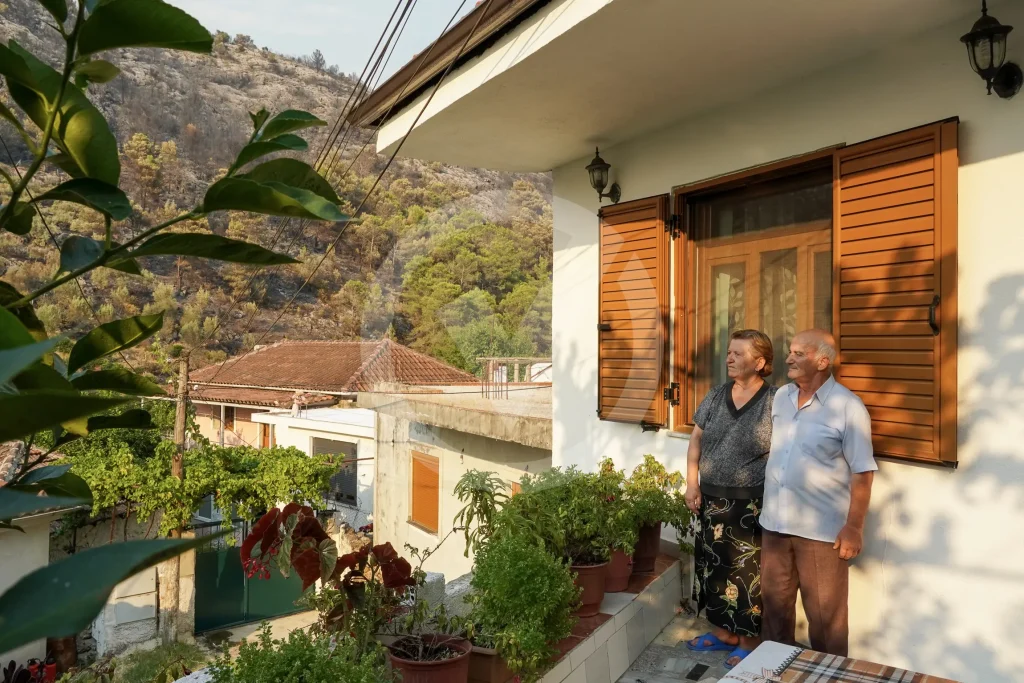
“We could hardly breathe, the heat of the flames, the smoke, the panic, it overwhelmed us all” 65-year-old states
as she cries recalling the moment when two of her neighbor girls were screaming and trying to put out the fire that reached her doorstep. “The serious situation began at seven-thirty. It came from the mountain nearby. I was in the yard when the flames broke out. The girls downstairs started screaming; they wouldn’t leave the house. The firefighters had gone to the oil well. It was a terror, a war. The firefighters and police arrived, not just a few, fifty policemen came. They pulled us out too. We have damage to the olive trees, but we saved our lives,” says 65-year-old Monika Moho to Faktoje.al. Her neighbor Liro, who has just come exhausted from the mountain pass nearby, with a small pump in his arm, says he is now helping the firefighters as much as he can to put out tall tree trunks that are still burning and could cause damage again.
Everyone in the “panic square”
“The square in front of the Municipality filled with many people; it was the only place temporarily safe from the fire. There was great chaos and fear; people were asking about their relatives to see if anyone had seen them.”
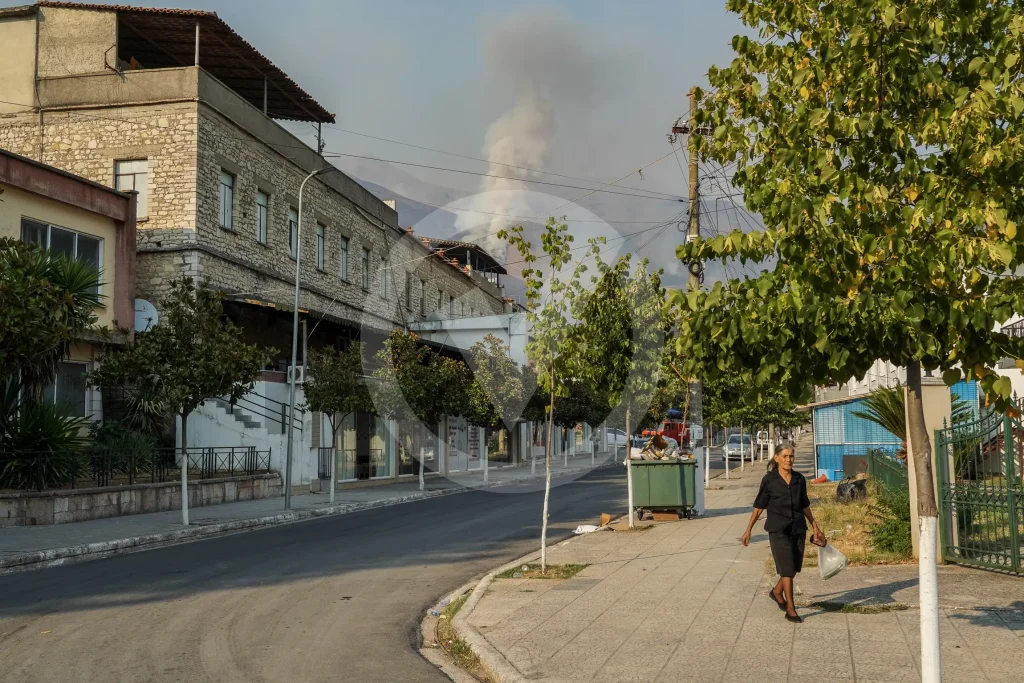
“It couldn’t have gotten any worse,” says Gëzim Lame, a resident of Delvina and owner of a café near the Municipality. “Truth be told, there was an effort to save homes and people, but action from the air should have come sooner,” insists another citizen, who emphasizes that he himself did not suffer damages, but many other families lost their property, mostly olive groves almost entirely destroyed.
Hands on their heads
The vegetation, olive groves, vineyards, pine trees, chestnuts, fruit trees, and shrubs, was almost completely burned, leaving behind a grim landscape whose consequences will remain for decades. Just 14 hours… that was enough for Delvina and its surroundings to look today as if after an apocalypse. “Oh God, my olive trees. Oh God, what has happened…” was the first reaction of a Delvina resident as soon as he climbed the city hill, toward Mount Sopoti. Below it, on a large plateau, lay thousands of olive trees, some centuries old and others younger.
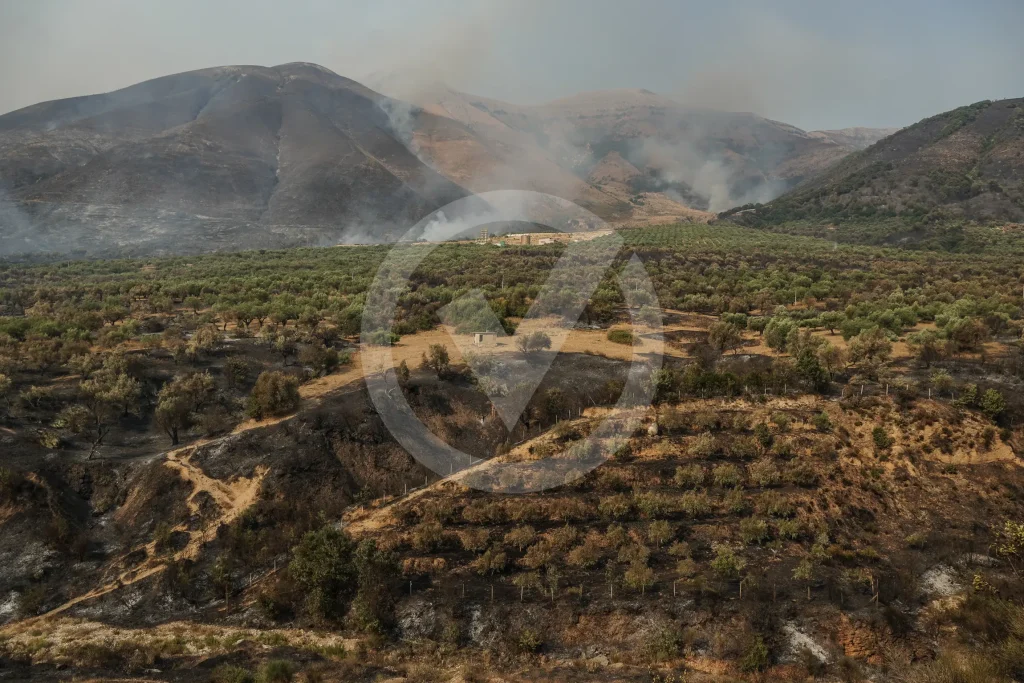
Nothing is left, everything is scorched to ashes, black everywhere, except for a few small hollows where the fire wasn’t strong enough and a partially burned tree can still be seen, not fully consumed. ‘Have you heard of Delvina oil? It was made here. Do you see any olive trees now? Do you see what they’ve become?’ he speaks, asking as if everyone is responsible (including us), then answers himself. We ask him to speak on camera with his name, but the middle-aged man refuses, and anyone would understand, as he shows constant signs of trauma. ‘What can I say? Look at what’s happening. I don’t know who to blame for this,’ he repeats, adding after every short sentence only:.. ‘Oh, oh, oh,’, and hands on his head.
A Delvina fire truck from 1963
A small group of soldiers prepare rather sluggishly as soon as they notice they are being photographed and surrounded by media. They try to stand straight, though their legs give way. Their hands blackened from the soot left by the fire, faces scorched, yet these men honored Delvina by saving lives.
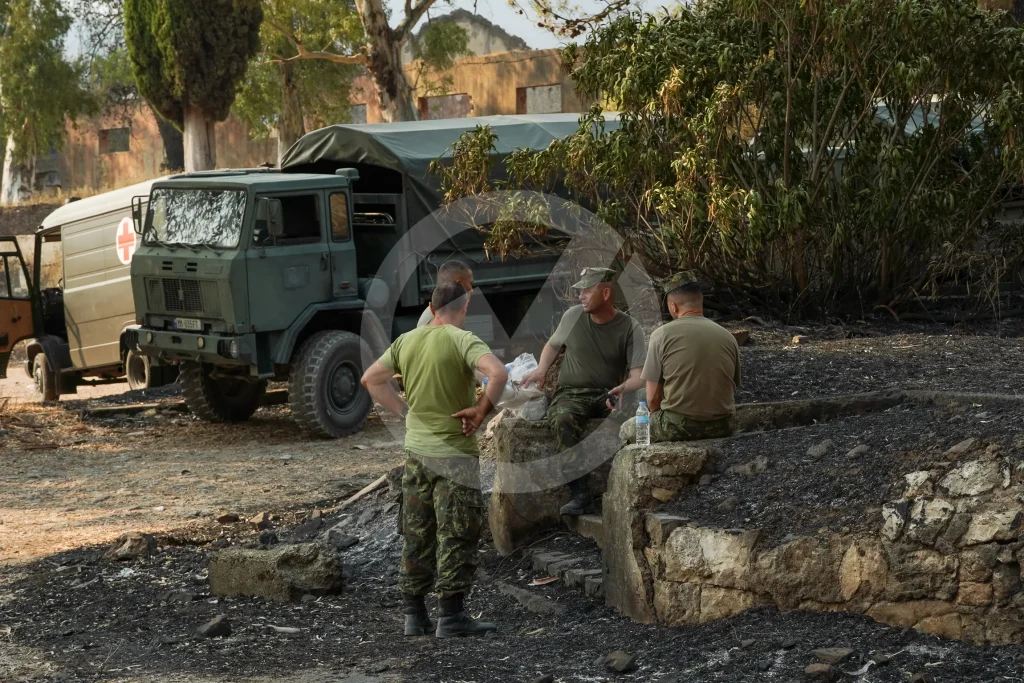
Each of them is a hero in their own right, having ensured that today no deaths are being recorded, along with a group of firefighters a bit farther away and several equally exhausted police officers. Asking them if they are tired seems almost offensive… Their fatigue, the effort, and breathing difficulties are clearly visible. The equipment they have includes piles of shovels, some shrubs, and a few hand pumps used to control small fire spots. One of Delvina’s fire trucks, one of only two in the city, is taking a short break… It was manufactured in 1963…! “It’s still working and it was useful because it could access rough terrain,” says a source on condition of anonymity. Special protective clothing is a luxury, as are modern fire trucks capable of projecting water over long distances. Another logistical problem was that the fire trucks were not accompanied by water tankers at the sites of intervention, forcing them to return to their base to refill. Poorly paid firefighters, as well as soldiers, especially those from the engineering unit who enter the flames first. Sandwiches and water… This was lunch and dinner for the military, fire, and police forces who worked nearly 24 hours to save Delvina’s urban area. They rescued people and homes, while everything else was burned to ashes.
Fire for a week around…
A cruel irony of nature unfolded in the Vlorë-Delvina-Finiq triangle. While the city of Vlorë experienced flooding from heavy rain a week earlier, in Finiq the scorching sun appeared and disappeared behind thick clouds, releasing numerous lightning strikes. “A lightning strike hit the peak of the mountain near Finiq, igniting a small fire that eventually spread,” says Plator Nesturi, Prefect of Vlora, speaking to Faktoje.al, adding that “the terrain was very rough, making intervention by human forces impossible.” As for aerial support, it arrived, but too late, far too late, and the fire destroyed everything in its path.
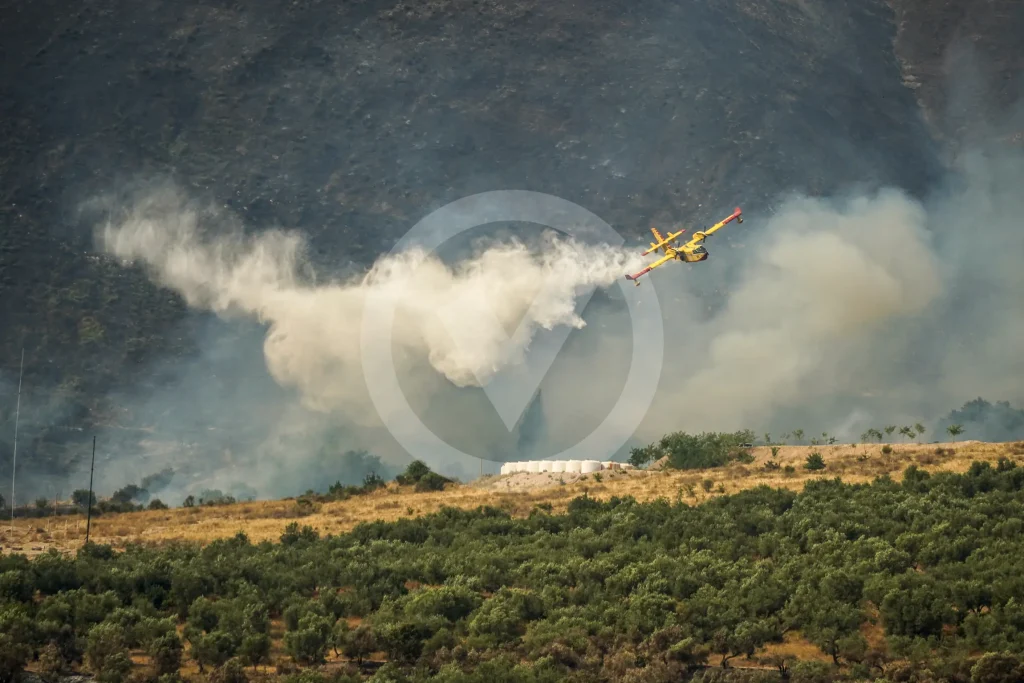
Two Canadair planes from Italy and two helicopters managed to extinguish part of the active fire on Wednesday morning. “It seems that the situation has improved considerably, although the hours were extremely tense due to the threatening fire. The flames reached three sides of Delvina and became very problematic,” says Plator Nesturi, Prefect of Vlora, in an interview with Faktoje.al, also confirming that the situation was quite serious. “The first priority was to evacuate residents, and later interventions began house by house and along roads, exactly in the segments where the fire was advancing. Above Delvina are the oil well sites, which required extra attention, as well as a gas depot,” he explains, adding that support came from all municipalities in Vlora County with firefighting equipment, as well as from Gjirokastra and Fier.
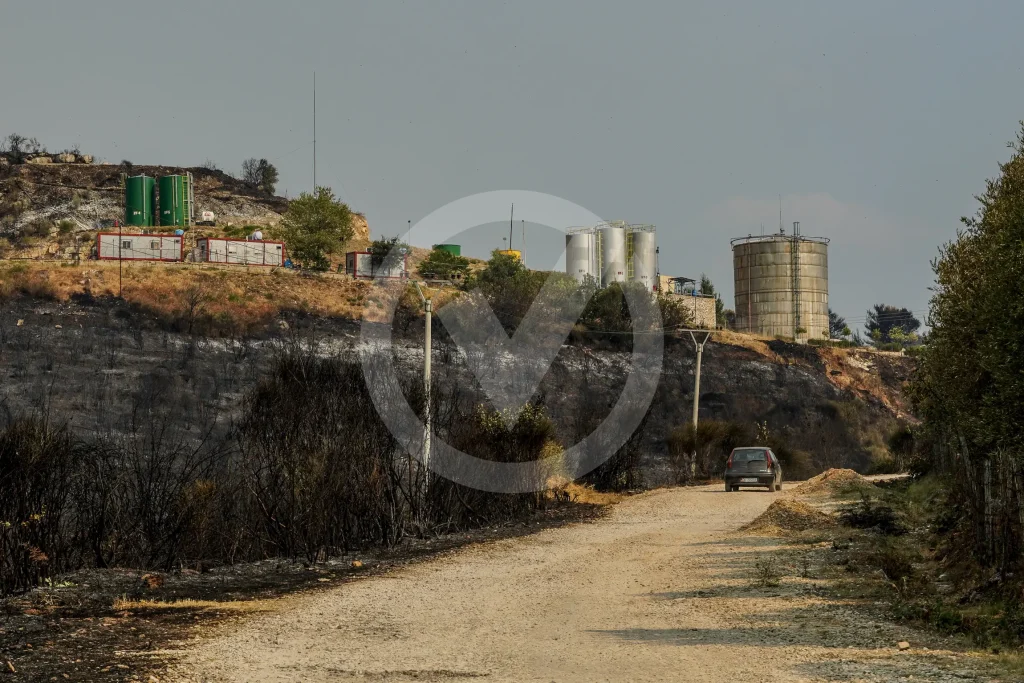
“There was additional support from the military, with over 120 personnel, accompanied by 60 firefighters from local units. Throughout that entire operation, we can say that although the damages are significant, we managed to prevent what could have been far greater destruction. Most importantly, we saved human lives,” says Nesturi. He also reveals to Faktoje.al that plans are underway to establish two firefighting centers to enable more efficient interventions in the future. “We are planning two zones designed to meet operational needs and to be under military supervision. One will be in Bonavi, near Vlora, and the other in Finiq. Fire trucks will be positioned in these two critical areas. Efficiency will improve not only for municipal firefighters working on the ground, but in emergency situations, these stations will allow for expanded response capacity,” Nesturi explains. Damage assessments have not yet been completed individually, but the final figure will be catastrophic. Delvina and its surroundings have been reduced to ashes. Vegetation, wildlife, fruit trees, olive groves, and vineyards are gone; hundreds of hectares have turned to dust and ash, revealing major deficiencies in equipment and human resources during emergencies.





